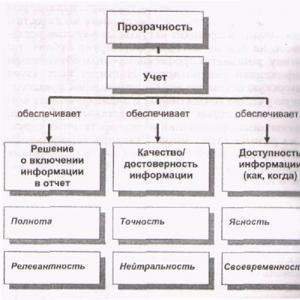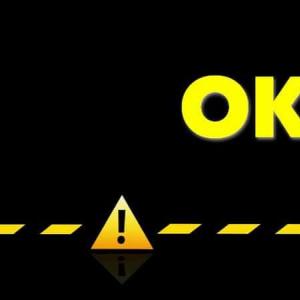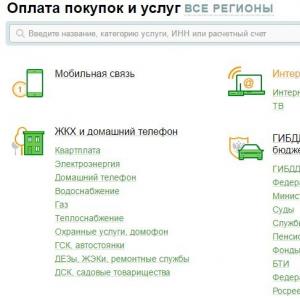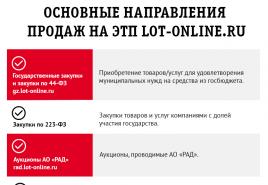What are the benefits small and medium-sized businesses receive when they participate in public procurement. Small business and government orders Government contracts tenders for small businesses
Government orders that scare small businesses
Why a government order is disadvantageous for small business
During the crisis, the state has become the most reliable and desired buyer. It would seem that entrepreneurs of all stripes must fight for life and death for the sake of winning various tenders for the supply of their products to government agencies. But practice once again diverged from theory. It turned out that the government order is unprofitable for small businesses and they run away from it.
The reason for this is the structure of the system. public procurement in Russia. It forces entrepreneurs to become creditors of the state at the initial stage of state orders. Add all other guarantees here and you will get, according to experts, an increase in the company's total costs up to 150 percent of the contract value.
“On the one hand, the state strengthens the economic protection of the customer: securing an application, a government contract, and no advance payment,” says Valery Malinovsky, chairman of the public procurement committee of the all-Russian organization OPORA Rossii. - On the other hand, these requirements hinder the participation of business in the state order. Competition decreases, corruption increases. "
Currently, companies that have received government orders are often required to provide cash security in the amount of 30 percent of the contract amount. And this is not just a whim of officials. Thus, the state is protected from unscrupulous suppliers. Agree, it is much more difficult for a company to disappear after receiving an advance payment if the customer has an impressive amount of its money in collateral.
The scheme is quite logical and has a right to exist. If not one but. And this "but" is the fact that the Ministry of Economic Development and anti-monopoly officials, according to Valery Malinovsky, recommend that state customers not pay an advance, so as not to become a victim of fraudsters. As a result, the state receives an interest-free loan from entrepreneurs, the funds for which were withdrawn from the company's turnover. And what does it mean for a small enterprise to take and withdraw from circulation a more or less substantial amount is not worth explaining.
Market participants emphasize that there are cases when a government customer requires a small company to provide financial security for a contract, and a very large one, but in the end does not even pay an advance. And it turns out that the contractor for several months fulfills the contract exclusively at his own expense (do not forget that part of the company's money is also pledged by the state).
Moreover, the entrepreneur is not free from the risk that the end result will not suit the customer for one or another indicator. In such a situation, tangible financial losses are almost inevitable, even if the entrepreneur has received a very large state order.
However, despite such frightening figures, the interest of small businesses in government orders is very great. Thus, according to preliminary estimates of the Federal Antimonopoly Service, the share of participation of small businesses in state orders is at least 30 percent. At the same time, the legislative quota of small businesses here is set at 10-20 percent.
But analysts are ready to argue with such numbers. For example, Alexey Shestoperov, an expert at the National Institute for Systemic Research on Entrepreneurship Problems, believes that the interest of private entrepreneurs in government orders is low, and one of the reasons for this is the prevailing stereotype of a corrupt system.
“Businessmen think that government orders are a very corrupt area,” says Aleksey Shestoperov. "As a result, they don't see the possibility of winning there."
At odds with the FAS figures and the opinion of the chairman of the board of directors of MTS "Fabrikant.ru" Sergey Gabestro. He is sure that small business is outside the government order, practically not participating in it.
Sergei Gabestro believes the reason for this situation is the 94th law regulating the issue of public procurement. In his opinion, in order for a breakthrough to occur, this law should be canceled.
“Even the Civil Code can regulate the system more efficiently,” Sergei Gabestro is confident. - The officials got so carried away with the fight against unscrupulous participants that they practically cut off the small and medium business, forcing entrepreneurs to line up in a single queue at Sberbank for a loan. "
According to Aleksandr Osin, chief economist at Finam Management, the current system reflects, first, the ongoing crisis of confidence in the global economy. Bank rates for small and medium-sized enterprises, for example, are still higher than the pre-crisis levels, and the requirements for the borrower have also tightened. The actual state policy in the field of state orders reflects this trend in the world economy.
Second, there are systemic problems in the management of the Russian economy by regulators. They are connected with the fact that in the conditions of the weakening of state control over financial and raw material flows in the Russian economy, the tendencies of the formation of "strong" and "weak" industries are intensifying. At the same time, investment capital is concentrated in selected sectors of the economy, these are finance, development, retail, mining and processing of raw materials. The shadow, speculative direction of investments is growing. To solve this problem, some administrative and legislative changes, including in the field of government orders, will not be enough. It is necessary to increase public investment, creating in the manufacturing sector the basis for long-term, direct investment, initially more "transparent" in nature.
“Naturally, up to a certain point, this practice leads to increased competition among small businesses, their consolidation, in parallel, in Russian conditions, the corruption component of this process is growing,” emphasizes Alexander Osin. - Its complexity and "non-transparency" support this trend. In the future, we can really get a significant reduction in the activity of investors in state order auctions. "
As told in one large web studio, which wished not to advertise its name, for them the experience of participating in the state order was twofold.
“We have won several tenders in Siberia to develop websites for government agencies,” says the studio director. - But these were rather exceptions to the rule. In most cases, government orders were received by other companies, sometimes without a big name and offering more expensive and less technological solutions. At the same time, I cannot say that we have made good money on government orders. The profit from these sites was lower than from similar projects created for commercial structures. For us, it was rather a matter of prestige and a reason to loudly declare ourselves in regions where our positions are not the strongest. Whether we are going to fight for the state order again is still an open question ”.
Entrepreneurs also complain that after their "exposure" in the state order system, various inspection bodies simply break off the chain.
“We took part in the state order several times, and we did not always receive it, but we were always visited by one or another supervisory authority with a regular check,” says the director of a small manufacturing enterprise from Astrakhan. “At the same time, the checks were carried out with special partiality, and they tried to find violations even where they had never been and could not have been.”
Sergey Semyonov
With the onset of the crisis in the country, the most vulnerable segment of the economy is small business. Despite the ability to adapt to rapidly changing conditions, it is it that disappears from the market first. The only thing that can prevent the liquidation of such enterprises is government orders for small businesses.
Varieties of trades
Studies show that the minimum share of government orders should be 10-22% of the total. The attitude of entrepreneurs towards this type of government incentives for small business is very twofold. Some regard government orders as a good way to expand the market, while others do not want to get involved due to the large number of difficult moments.
The term "government procurement" itself means orders of state or municipal structures for industrial and food products, weapons, equipment, services from enterprises that produce them.
As a rule, such companies are selected on the basis of a competition or a so-called tender. In Russia, the term "placing an order" has become more widespread.
At the moment, there are five types of public procurement:
- electronic auctions. They are carried out within the framework of special electronic platforms by placing lots on them. All documentation is also being prepared in in electronic format;
- open competitions. They are carried out when the main selection criterion is the best price, and then the timing, quality and other components. Often they are used when it comes to a transaction in the amount of 500 thousand rubles;
- requests for quotes. They are carried out according to the previous principle, with the only difference that we are talking about less expensive contracts;
- purchase from one supplier. This view it cannot even be called an auction, since the purchase is carried out from a single contractor;
- open auctions. They differ from electronic ones in that orders are printed in the media. Recently, this type of order placement has practically lost its relevance.
These types of purchases by the state are used both to meet their own needs (weapons, medicines) and for the needs of the population (food).
How procurement is carried out
All categories of enterprises - state, private, individual - can take part in most types of tenders. The deal is concluded with the company that won as a result of the competition.
It should be noted that the very procedure for holding an auction, signing documents and concluding a deal is strictly regulated by law. Supervising bodies - Accounts Chamber and Treasury. In special cases, the FSB is connected when it comes to weapons.
The procedure looks like this: contractors send an application for participation, in which an acceptable price is indicated for them, and a special commission, in turn, considers each of them and selects the best option.

 There are several ways to conduct purchases:
There are several ways to conduct purchases:
- open;
- selective (everyone can apply, but only those selected by the customer will take part in the competition);
- closed (participants are invited exclusively by the organizers).
The bidding process can take place in two stages. If the tender is supposed to be held in one stage, then there is no possibility that the requirements for the order may change. The two-stage bidding suggests that they may undergo some changes.
Some features of participation of small companies in tenders
The specifics of procurement by small businesses are spelled out in a special law of the Russian Federation "On procurement". It states that customers should make purchases from small and medium-sized companies in the following volume:
- From 01.01.2015 to 31.12.2016 - at least 18% of the total number of contracts.
- From 01.01.2017 - at least 25% of the annual number of orders.
It is assumed, however, that bidding is often completely free of charge. But in some cases, some money and time costs are still provided. The minimum funds will have to be invested in electronic trading. As a rule, we are talking about a conditional contribution, which is not refundable regardless of the results of the auction.
Liability of the parties
 Failure to comply with the conditions of the competition is also controlled by the state. For this, a whole system of penalties has been developed, both for the customer and for the supplier of services or goods. The basic principles of all types of auctions are equality and openness.
Failure to comply with the conditions of the competition is also controlled by the state. For this, a whole system of penalties has been developed, both for the customer and for the supplier of services or goods. The basic principles of all types of auctions are equality and openness.
The customer should not:
- Violate the forms and order of the competition.
- Change the timing of placing orders.
- Hide information about the conditions when it comes to open tenders.
- Post distorted information about participants.
It is difficult to hide the fact that at the moment there are various types of corruption schemes used in order to obtain a profitable order by some particular enterprise. One of the options for such a scheme may be winning the auction of a small company, which, in fact, is a subsidiary of large-scale production.
Other shenanigans include:
- indication of deliberately unfeasible volumes of work and / or unrealistic deadlines for other participants;
- distorted payment terms that are not acceptable to the supplier;
- discouraging the participation of strong performers;
- understatement of the order price;
- attracting fake clients to participate.
 Most often, such schemes are used when it comes to especially large and profitable orders. It is much easier for small companies to win in small tenders.
Most often, such schemes are used when it comes to especially large and profitable orders. It is much easier for small companies to win in small tenders.
Even in the world practice, there are cases of unfair trading. Especially often the world mass media cover such events from the auctions in the USA and Japan.
In Russia, in recent years, the methods of combating such violators have been significantly tightened. However, there are still too many shortcomings in this area. For example, there is still no clear system that would regulate the order of placing orders for small companies. In this regard, they are still forced in most cases to rely on their own luck rather than on laws.
So far, electronic systems for holding auctions cannot boast of well-functioning work. In the total mass of all orders, it is rather difficult to single out those that are intended for small businesses. Moreover, as practice has shown, it is much easier to hide the dishonest actions of a customer at a small auction than when it comes to a large tender.
However, even taking into account all of the above, it should be noted that certain steps of the state towards small businessmen are still being made. Even in the conditions of bureaucratic and corruption schemes, getting an order for the supply of services or goods has become much easier than a few years ago.
State order. Dreams come true: Video
A business based on government procurement is gaining popularity every day. With its help, you can sell goods and services provided by your company, as well as earn decent money. At the same time, the demand in this market is stable and has large volumes.
Public procurement is a way of placing orders for the provision of various types of services, the provision of a certain type of resources, or the implementation of the works specified in the document within strictly specified terms. The contract is signed with the winner of the auction, who was able to offer his services with the most favorable conditions for the customer.
The use of such a relationship is beneficial to both parties. The state receives the highest quality performers.
Business - monetary reward for the work done and the opportunity to constantly improve their services in connection with rather serious competition. Any legal entity or individual can act as a participant in such trades.
General principles and rules for participation in public procurement are discussed in this video:
Public procurement methods
The government procurement market is divided into the following types:
- Public procurement through auctions
- Electronic auction
- Closed auction
- Open auction
- Competitive basis
- Closed
- Open
An electronic auction is carried out in electronic form on specialized sites, which are accredited by the Ministry of Economic Development of the Russian Federation. All data on the conduct of this type of auction, its progress and results are posted on electronic platforms. How to participate in electronic bidding and what to consider - read.
Open and closed auctions differ only in that the bids of other participants are unknown to the auctioneers. They are served in special envelopes; in open auctions, the opposite is true. All applications become known to the participants.
The most used type of procurement is open tender. Anyone can take part in it, and information about them is published in specialized publications. Competitors must submit applications that meet the requirements of the event.
The winner providing the most favorable terms is determined by the commission. The competition is considered invalid if only one application has been submitted for it. If negotiations with the winner come to a standstill, preference is given to the next most attractive candidate.
A closed competition differs from an open one only in the method of selecting participants. Only invited suppliers can participate in it.
Pros and cons of government orders
Any field of activity has its positive and negative points, and if you use the first to the maximum and not be afraid of the second, then the road to the top can be not only successful, but also bring pleasure. Let's figure out all the pitfalls of our chosen business.
The undoubted advantages of working with government orders include the fact that force majeure situations and risks when working with the government are minimized. This is realized through the most transparent system of spending funds and all procedures performed. Also on the positive side is the transparency of the procedures.
An important role is played by the fact that the state is trying to actively help and expand the boundaries in this industry, since by giving orders to third-party firms and stimulating their growth, it also strengthens economic stability and creates a healthy atmosphere in the country.
Unfortunately, ideals do not exist, and each system has its drawbacks. The same is happening in the public procurement market. Most of the companies offering innovative products, despite all the promising nature of their services, it is quite difficult to get through to receiving worthwhile orders.
In most cases, the state tries to choose proven products and services. Although recently the situation in this direction is changing for the better.
 Basic principles of public procurement.
Basic principles of public procurement. The level of bidding and the availability of competent specialists in this area also wants to leave the best for now. This leads to the problem of the impossibility of controlling the quality of the procurement, which makes it necessary to assess the quality of the services provided during the operation.
In connection with the prospects of this type of activity on the market, cases of fraud, the appearance of criminal gangs on the market and the practice of kickbacks for receiving especially profitable orders are becoming more frequent.
How and by what government procurement is regulated
There is a certain list of laws that perform the function of regulating relations in this market:
- Law No. 44-F3 on the contract system - regulates the methods and procedure for implementation procurement activities.
- Law No. 223-F3 on the procurement of certain types of legal entities - comes into force if the customer's funds are not generated from the federal budget or the customer is a commercial company with state participation.
- Law No. 135-F3 on the Protection of Competition - ensures the unity of the economic space, the free movement of goods, the protection of competition and the provision of conditions for the efficient operation of commodity markets.
- Law No. 63-F3 on electronic signature - regulates relations in the field of use electronic signatures when making civil transactions, providing state and municipal services.
All laws help to strictly regulate the order of implementation and methods of procurement. Procurement information, answers to participants' questions and changes are freely available.
The monitoring function in the field of procurement is assigned to the Ministry of Economic Development. It is carried out through the constant collection of information, which is subsequently subjected to a multilateral assessment.
On the basis of Law No. 44-F3, in some cases public procurement is subject to public discussion... The list of such cases is established by the government.
Step-by-step instructions for participation in public procurement
Let's figure out step by step how we start our business and what should be done first. In the 21st century, the most promising option will be to work with electronic resources.
Their undoubted advantages include the absence of difficulties with the implementation of such things as tracking tenders, a facilitated form of interaction with the market and many other positive aspects. Based on this, the entrepreneur needs to do the following:
- Obtaining an electronic digital signature. According to the legislation of many countries, including the Russian Federation, an electronic digital signature is equivalent to the usual signature of a director. Accordingly, it is necessary when using the Internet. - read the instructions on the link.
- To gain access to tenders, an entrepreneur must also go through the accreditation procedure. It is necessary to fill out the registration form, submit the constituent documents (charter, power of attorney to participate in the auction, extract from the state register).
- Decide on the site where the entrepreneur is going to look for his orders. Her choice is a matter of taste and the only important thing is the availability of accreditation.
The preparatory stages have been completed, and the following actions of the entrepreneur should be as follows:
- Replenishment of the account, which will be tied to the trading platform, since if there is a zero balance, the application will not be submitted. The minimum amount required should be 5% of the value of your tender. Find out how to open a current account and what documents are required.
- Filling out the application. It consists of two parts: informational, which contains all the necessary documentation and information, and anonymous. It describes the services, conditions, as well as other data on the transaction that the customer considers necessary for execution.
Useful rules for beginners
From the above, we can conclude that, if desired, small and medium-sized businesses have extensive earning opportunities. And if certain conditions are met, the probability of a successful start can be increased significantly. To do this, you need to draw up a business plan that will greatly facilitate the phased development of your business.
It is necessary to follow the order you are interested in at all stages and not leave the case to chance. After all, there is a possibility that the customer will change the conditions at the last moment and you need to be ready for this.
 The main ways of conducting public procurement.
The main ways of conducting public procurement. In the event that the customer sets a price lower than the market price, you need to be more careful with him. This may indicate his lack of good faith. Do not ignore people's feedback about a particular customer and, if possible, study them as carefully as possible.
It will be useful to attend seminars and training events conducted by more experienced players who are willing to share their experiences. This will help you avoid a lot of small troubles that can get in your way.
What support for small and medium-sized businesses is provided by the state and what sources exist - read the link.
The Public Procurement Law has been in effect for over 10 years. However, many entrepreneurs are hesitant to apply for participation in tenders and auctions. These are unwarranted fears. The requests of organizations are very diverse, and the volumes of supplies, taking into account the total course towards economy, are quite affordable for small businesses.
There are many entrepreneurs who successfully build their business on public procurement, but there are also many who find the ordering system too complicated. He simply does not believe in a real opportunity to get a "piece of the state pie" - and in vain. For all its shortcomings, it is more transparent than many other commercial schemes, and you can master it if you wish. At the end of the article, we will give an interview with the owner of the small business, whose revenue is 80% secured by government contracts.
Government purchases and government orders, regulatory documents
Main regulatory documents:
- No. 44-ФЗ dated 05.04.2013 - "The Law on the Contract System in the Procurement of Goods, Works, Services to Meet State and Municipal Needs."
- No. 223-FZ of 18.07.2011 - "On the procurement of goods, works, services by certain types of legal entities."
All applicants for a state or municipal order for the supply of goods, the provision of services or the performance of work are equal before the law. This is the essence of the existing rules that govern the conclusion of such agreements.
The customers of services, goods in the system are state, municipal:
- executive agencies;
- companies, corporations, natural monopolies (for example, Gazprom);
- autonomous, unitary enterprises; budgetary institutions;
- enterprises providing water, gas, heat supply;
- organizations with a share of state, municipal participation of more than 50%.
The supplier can be a legal entity of any form of ownership, individual entrepreneur - regardless of location, registration (since 2015 - with the exception of those registered in offshore zones). Customers are required to use competitive methods for selecting performers (Fig. 1). The winner is the participant who offered the lowest price, the best conditions. The government procurement rules for small and medium-sized businesses establish significant benefits, which we will discuss below.
General requirements for suppliers of goods, service providers:
- compliance with legal requirements and restrictions;
- no suspension, bankruptcy, liquidation;
- tax debt is not more than 25% of the asset value.

The entire procurement process, from drawing up plans to identifying suppliers and signing a contract, is carried out in the Unified Information System - EIS (www.zakupki.gov.ru). In fairness, it should be noted that customers complain about its complexity even more than business representatives. The requirements for them are tough, and for violation of the order, such sanctions have been established that among civil servants the expression “fine on credit” has appeared.
In 2015, the FAS Russia initiated 22,063 cases under the Administrative Code for violations of Law No. 44-FZ, issued instructions on fines - 18,966, and collected 158.3 million rubles. Of these, 6,425 cases were for the approval of procurement documentation that did not meet the requirements (5,469 fines); 5,237 - for violation of the procedure for selecting suppliers (3,452 fines). Data of the report of the Ministry of Economic Development.
How is the work of the ENI organized
Now the UIS works exclusively as a technical system, performing such functions as:
- formation, processing and storage of data on government orders;
- providing access to suppliers to submit applications;
- ensuring the exchange of electronic documents with EDS.
From 2017, it will perform control functions: to check whether the procurement plan corresponds to the amount of allocated state funding, and the terms of the concluded agreement - to the documentation for the application and protocols. Government customers will be required to carry out purchases strictly on schedule.
What information is posted by the customer
When making a specific purchase, he must enter the following information, including all subsequent changes:
- purchase notice;
- documentation, clarifications;
- draft agreement.
The term for making changes is 15 days, and when the essential conditions change at the conclusion of the contract and in the course of its execution: price, terms, volumes - 10 days. The information is kept up to date.
Example of searching for information about placed contracts
Having opened the main page of the public procurement website (Fig. 2), by pressing the Suppliers button, you can view the complete register of placed orders and purchases. Below on the right is an exit to a list intended only for small businesses.

Let's give as an example the search results for several randomly selected queries:
- stationery - 5200;
- spare parts for cars - 3;
- medical supplies - 43;
- repairs - 800,000;
- audit services - 243;
- refueling of cartridges - 192;
- furniture - 74,000;
- repair of copiers - 703;
- IT services - 793;
- household goods — 2700;
- detergents - 3600;
- instruments - 7600.
By selecting, for example, a specific order according to the register - government procurement for small businesses, you can view full information about the conditions by clicking the application number (Fig. 3).

Preferences for small and medium businesses
The participation of small businesses in public procurement is regulated by Article 30 of Law No. 44-FZ. It sets the minimum share for SMEs and SONCOs at 15% of the total aggregate annual volume of procurement placed. At the same time, they can declare in any auctions and tenders, including closed ones and with limited participation - if they have a license or permit for a certain type of activity.
The customer can select applicants from among SMEs in two ways (No. 44-FZ):
- limit applicants directly in the notice, while the initial (it is the maximum) contract price should not exceed 20 million rubles (part 3 of article 30, paragraph 4 of article 42).
- establish a requirement for a participant (any) to attract SMEs as a subcontractor, indicating the amount of participation in% of the total cost; then the restrictions do not apply (part 6, article 30).
An enterprise or individual entrepreneur must comply with the conditions of Article 4, No. 209-FZ, July 24, 2007. Until August 1, 2016, the law is applied in the old version. After this date, all subjects of the NSR will be entered into a single register, which will be posted on the official website of the Federal Tax Service. This will allow customers to receive reliable information about the supplier. Currently, the applicant submitting only a declaration of conformity to the NSR.
According to the report of the Ministry of Economic Development and Trade in 2015, 15% of the quota for participants - representatives of small and medium-sized businesses was fulfilled. Representatives of this segment received from the budget about 490 billion rubles only under direct contracts (without subcontracting). The head of the department himself (interview to the Kommersant newspaper) considers the figure to be overstated, but according to him it is not less than 400 billion rubles (Fig. 4).

The total number of applications in 2015 is 10% more compared to 2014, and the average number of applicants for one order worth up to 10 million rubles increased from 2.6 to 3.5. The predominant method for determining a supplier (performer) is electronic auctions (56.6%).
Selection procedure for an electronic auction (EU)
The procedure for conducting ES is regulated by Articles 59 -71 of Law No. 44-FZ. When the customer makes a selection in this way, the following information must be indicated in the notice:
- Internet address of the electronic site;
- the term until which applications are accepted;
- date of the auction;
- the size and form of participation;
- restrictions on participants (SMP, subcontracting);
- conditions for the admission of foreign goods.
Currently, there are 5 electronic platforms operating: Sberbank-AST CJSC (www.sberbank-ast.ru), United Electronic Trading Platform JSC (www.roseltorg.ru), State Unitary Enterprise Agency for State Orders (www.zakazrf. ru), Electronic Trading Systems CJSC (www.etp-micex.ru), RTS-Tender LLC. Three diagrams are shown below that clearly show the process of conducting such trades.



What you need to take part in the auction
Participation in the EU is free, but in order to have access to the auction, you need to obtain accreditation at a specific site. To do this, the operator is sent a package of documents in electronic form, signed by an EDS (a separate one is required for each):
- standard form statement;
- extract from YUGRUL or EGRIPP;
- copy of the passport of the participant (individual);
- copies of decisions, orders to the person receiving accreditation on behalf of the company;
- constituent documents of a legal entity (copies);
- TIN, email address;
- a document confirming the authority of the head;
- decision on the right to make major transactions (if required).
To understand in more detail how the public procurement business works, we present interviews with real bidders.
Interview with Galina Mishina, LLC "KCLR" Protex-Garant ", Novokuznetsk
Short information. The Kuzbass Center for Treatment and Rehabilitation has been operating since 1992. In all respects, it corresponds to SMEs, the number of employees is 39 people. Main focus: production technical means for disabled children: supports, tables, chairs, as well as orthopedic products and devices for the development of fine motor skills.

Since a significant part of such equipment is purchased through the Social Insurance Fund (FSS), the company is actively working on government procurement. Galina Borisovna answered several of our questions.
Hello Galina. Please tell me what share of your business does government procurement take? How long have you been with the EIS?
Government orders under contracts with customers account for 80-90% of all activities. The exact figure depends on the capabilities of the enterprise and federal funding for social programs. We have been working with them for a long time, since the day of foundation. Before the EIS, we also worked, but through paper media, which was very inconvenient and unreliable.
How is the work organized, how many people are looking for orders? What are the main problems?
Work on drawing up an application (technical proposal) and submitting it to the site, participating in an auction (or quotation), as well as checking and signing a contract is performed by specialists of the commercial department under the supervision of a lawyer. There are 4 people in the department, all have a legal or economic education. Each specialist is assigned certain regions of the country, with which we work under government contracts. There are no special problems with accreditation and the formation of applications.
Who are your customers, are the prices very different? How many competitors do you have?
The customers are the branches of the FSS in the regions, the Ministries, which have been delegated the powers of the FSS to provide means of rehabilitation for children. They set prices themselves on the basis of 44-FZ. Sometimes the initial price is equal to the cost of products and delivery to the site. In this case, we decide not to participate in the auction. If the price is acceptable, then we calculate to what price you can fall. There are, of course, competitors. Sometimes we ourselves are surprised when we see in the list those companies that buy equipment from us.
Is it difficult to work with government agencies? How do they meet payment deadlines? Are litigation frequent?
There are always problems, but not in payment, but in other points. There are those who do not understand that the products are made for disabled children, and they are not the same. If they are targeted, taking into account all individual characteristics, then this gives a rehabilitation effect. The documentation, competently drawn up by the customer, is a half-completed contract; when everything is clear: what, to whom and what product. However, some of them make up a technical task of four lines and do not take into account the various pathologies of sick children. With them most often problems. The child does not need what is written in the terms of reference, the recipient asks to change, but we have no right under the contract. And the customer doesn't care. So the pre-trial correspondence begins. There are few ships, but there are.
What do you think, can individual entrepreneurs, small enterprises participate in public procurement? Is there a real chance for a small business?
Enterprises should take part in auctions, this is the future. However, if the form of ownership of the individual entrepreneur, then one must remember that if the delivery time is violated, large fines will be imposed, and the individual entrepreneur (unlike LLC) is liable with all of its property. Therefore, before submitting an application, you must first study the supplier's obligations in the draft contract, which is attached to the documentation. If everything is all right, then go ahead!
Summing up.
When selecting suppliers for public procurement, small and medium-sized businesses have legal advantages. Taking into account the solvency of the counterparty, entrepreneurs can plan their activities and reduce risks. Technically, mastering the procedure is no more difficult than the services of the Federal Tax Service, Pension Fund of Russia. Of course, any competitions and auctions have their own "tricks", but this is already a matter of experience. It is hardly worth resorting to the help of intermediaries offering services for the search for state orders, it is more practical to master the skills of working with the EIS and electronic platforms yourself.







